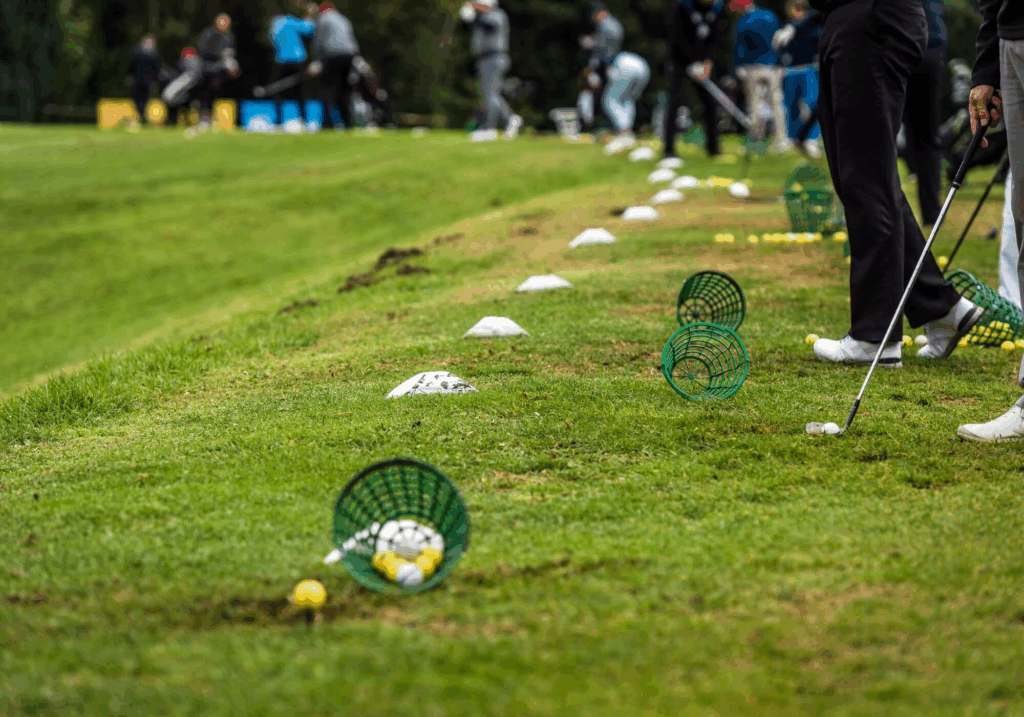Starting your first full season of golf is exciting—but it can also be overwhelming. There’s so much to learn, so many clubs to hit, and so many things that can go wrong. And if you’re anything like most beginners, you’re probably already wondering, “How long until I’m good?”
Here’s the truth: golf is a game of progress, not perfection. And the key to enjoying it early on is setting realistic, achievable goals that keep you moving forward without burning out.
Whether you’re picking up a club for the first time or dusting them off after a long break, here’s how to set yourself up for a successful—and enjoyable—first season.
Focus on Fun, Not Just Scores
Yes, golf is about performance. But in your first year, the main objective should be enjoying the experience.
Golf can be frustrating. You’ll hit bad shots. You’ll three-putt. You’ll top one off the tee—and that’s all part of the process. If your only goal is to “break 90” or “beat your friends,” you’ll likely end up disappointed early.
Instead, set a goal to enjoy each round, take in the scenery, and embrace the learning curve. If you walk off the course with a smile more often than not, you’re doing it right.
Track Progress, Not Just Performance

Forget about shooting a specific score for now. Instead, track your progress based on things you can control:
- How many fairways did you hit?
- How many times did you get up and down from around the green?
- How many putts per hole or per round?
- Did you improve your contact on tee shots?
- Are you avoiding penalties or double chips more often?
These are the kinds of metrics that show real improvement—long before your handicap drops or your scorecard gets tidy.
Build Consistency in Practice

You don’t need to spend hours at the range every day. But try to make a few short, consistent practice sessions each week a goal. That could mean:
- 20 minutes of putting at home
- A few swings in the garage with a training aid or net
- Chipping to a towel in your backyard
- One trip to the range per week with a purpose (not just hammering driver)
Set a goal to practice 3–4 times per week for 15–30 minutes. You’ll be amazed how much more confident you feel on the course just from routine and repetition.
Play Different Types of Golf
Don’t get stuck thinking that a full 18-hole round is the only way to play. Early on, it’s more productive—and less stressful—to mix up how you experience the game.
- Play nine holes instead of 18.
- Try a par-3 course.
- Go out for “practice rounds” by yourself with a couple of clubs.
- Play scrambles with friends.
Set a goal to experience golf in a variety of formats. It’ll build skills without the pressure and keep the game fresh as you learn.
Get Comfortable with Course Etiquette

One of the smartest goals you can set? Learning how to move confidently on the course. That includes pace of play, basic etiquette, cart use, and green behavior.
You don’t have to know every rule, but if you show that you’re trying to respect the course and your playing partners, you’ll fit in anywhere. Set a goal to learn:
- Where to stand while others hit
- How to repair divots and ball marks
- When to be ready to play
- How to keep things moving without rushing
The confidence that comes with knowing how to “act” on the course is just as important as knowing how to hit.
Celebrate Small Wins
Your first par. A clean tee shot that actually flies where you aimed. A chip-in. Those are the moments that keep golfers coming back, even after a triple bogey or three lost balls.
Set a goal to find one thing to celebrate every round—no matter your final score. This mindset shift can be the difference between falling in love with the game or walking away frustrated.
Don’t Compare—Just Commit

You’ll see players around you swinging like pros and hitting shots you’re nowhere near yet. That’s fine. Everyone is on their own timeline in golf.
Instead of comparing, commit to the journey. Give yourself a full season to learn, explore, and improve without judgment. If you do that, you’ll find yourself progressing faster than you expected—because you’re not putting artificial pressure on your swing or scorecard.
Final Thoughts
Your first golfing season isn’t about proving anything. It’s about building a foundation—developing a swing you trust, understanding how to navigate the course, and most of all, discovering what you love about the game.
Set simple, realistic goals. Practice with purpose. Stay patient. Golf isn’t meant to be mastered in a month—but if you play it with the right mindset, it’s something you can enjoy for life.
